Individual Nurses
Do you want to bring even greater value to both your patients and workplace?
Becoming a certified nurse positions you as an asset and can also lead to numerous other benefits.
Imagine one of your patients needing emergency peripheral IV access. You may be the only one in your building who can perform it, assuming you have the proper training.
Situations such as those prove IV education to be invaluable. And with IV Mastery, it comes at an affordable price.
IV Mastery’s founder Hugues Villeneuve lives by the wise words of Dr. Hong:
“Inserting a line into a patient is one of the individual skills you can learn as a nurse that can save a life.”
When you are IV Certified, you can:

Improve skills and confidence

Move up in your nursing career

Reach more employment and promotion opportunities

Increase your salary and value in the marketplace
It’s time to become the best nurse you can be!

IV Mastery helps you stand out to potential employers.
Let’s be honest… you don’t learn everything you need about IV management in school. And yet, you will be asked to provide care for infusion patients no matter where you go. Show that you have had the character to go above and beyond to educate yourself where others didn’t.
Employers seek this type of initiative and ambition when hiring and promoting professional nurses.
Countless floor nurses and nurse educators already use IV Mastery as their online training platform to assist others in learning everything they need to know about IV management.
“A+++++ A+++++ Strongly encouraging anyone that wants to keep their skills up to date to use it, great course! I feel much more confident about my IV management skills; excellent, thank you.”
– Simona Salcau, RN
I love being able to complete it at home or work; It serves as an excellent all-around refresher. I would highly recommend it as a review and for new nurses as well; very helpful and very well done!”
– Susan Rall, LPN
Your nursing education may have taken place long ago and the skills learned can easily fade away. You should refresh your memory on the vital skills that are so commonly performed in nursing. It’s one of the wisest career choices a nurse can make.
“Let us never consider ourselves finished nurses. We must be learning all of our lives.”
The words of Florence Nightingale are timeless. They remind us that nurses maintain the responsibility for continually expanding their education in their profession.
IV Mastery offers 17 courses in IV management and more than 40 contact hours. We provide the right tools and training to assist nurses in optimizing their IV education.
Get certified and reach your full potential!
Enroll yearly
$197
per year
You get unlimited access to all the following training programs and more!
IV MANAGEMENT CERTIFICATION
This class prepares participants for initiating and/or maintaining common intravenous therapies. Course topics will include review of vein anatomy and physiology, indications for IV therapy, infection control, nursing management, equipment complications. Nursing assessment, documentation and common IV drugs will be discussed. Care of central lines and central line dressings will also be covered as well as care of implanted port including accessing and de-accessing an implanted port. Upon completion of this class, nurses will earn a Certificate in IV Management and Care.
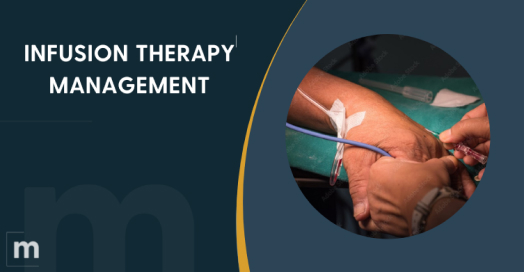
Additional information
Class Overview
This class includes ten modules. Each module starts with a teaching video followed by a quiz. The student needs a minimum score of 80% in every module. to access their certificate. If the student fails a quiz, they retake it until they pass.
Each module has a section with tabs for additional content. The first tab lets you print the workbook corresponding to the video.
Other tabs may include additional video training, nursing competency, and additional references or resources like posters and links.
This course will cover in detail:
- The Legal Implications of IV Therapy and Legal Governance.
- Infection Prevention and Adverse Reaction.
- Hydration Therapy and Fluid Regulation.
- IV Medication Administration Standards of Practice.
- Vascular Anatomy and Peripheral Catheter Management.
- Midline and Central Line Management and Differentiation of Vascular Access.
- Central Line Care and Maintenance Including Flushing Protocol and Dressing Change.
- Vascular Access Devices Complications and Interventions.
- Clinical Review of IV Pump Management and Central Line Dressing Change.
- Clinical Practice and Skills Assessment for Licensed Professional.
- Test questions will follow each module.
- The nurse receives a certificate of completion after successful completion of the entire course.
PERIPHERAL CATHETER INSERTION
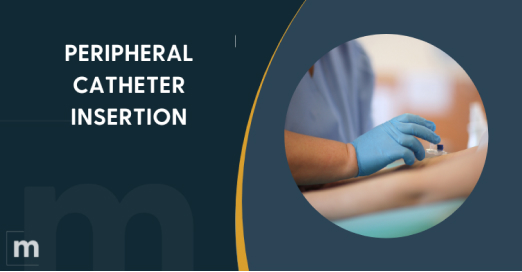
This class is for RNs and other qualified clinicians who want to earn certification in the insertion of short peripheral IVs (PIV). This certification is a thorough training course, earning nurses a short peripheral insertion certification. This class will teach the nurse how to locate veins and the proper technique to insert a short peripheral IV. Upon completing this training class, nurses will gain the competence and confidence to insert PIV catheters. Nurses will receive certification as part of this class: Peripheral IV Insertion Certifications.
Additional information
Class Overview
The nurse will learn to assess peripheral veins effectively, acquire the essential skills for successful peripheral catheter insertion, and properly manage a patient’s implanted port.
This course will cover in detail:
- General Guidelines/Indications/Advantages of Peripheral IV Catheter.
- Review of Equipment and Preparation Before the Procedure.
- Peripheral Catheter Insertion Procedure.
- Complications and Documentation.
- On-Site Clinical Practice and Competencies Assessment.
- The nurse receives a certificate of completion after successful completion of the entire course.
As part of this class, the nurse will access tutorial videos and procedure posters as tools to use during the procedure.
This course also includes a competency form to be completed by your nurse educator and added to the nurse’s folder.
PARENTERAL NUTRITION
This class is for LPNs and RNs who need to learn how to care for patients receiving parenteral nutrition. The nurse receives thorough training from expert IV nurses/educators during this class. This class offers the participants a detailed review of initiating and maintaining parenteral nutrition infusion. Course topics will include a review of parenteral nutrition in adult patients, differentiation between continuous and cycled parenteral nutrition, parenteral nutrition lipid administration, clinical monitoring, and placement of additives in a parenteral nutrition solution. Nursing assessment and documentation will be discussed. The care of patients receiving parenteral nutrition will also be covered.
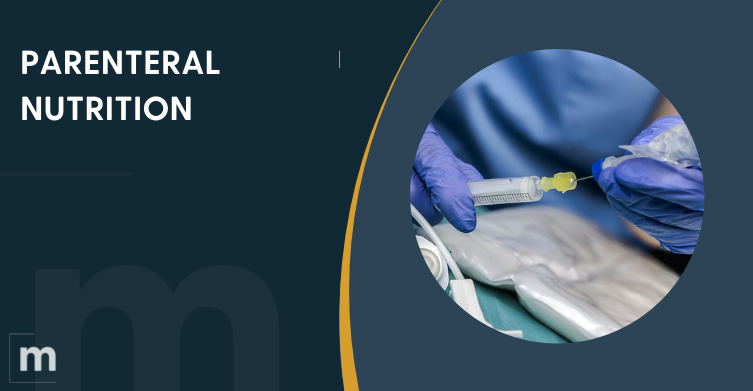
Additional information
Class Overview
All nursing staff caring for a resident receiving parenteral nutrition (PN) will receive training and demonstrate competency regarding parenteral nutrition to ensure proper assessment and monitoring of the resident for complications.
This course will cover in detail:
- Parenteral Nutrition in Adult Patients.
- General Guidelines, Safety precautions.
- Infection Prevention and Regulations.
- Parenteral Nutrition Continuous Versus Cycled.
- Parenteral Lipid Administration.
- Clinical Monitoring of Parenteral Nutrition.
- Placement of Additives in Parenteral Nutrition Solution.
- Demonstration of Parenteral Nutrition Equipment.
- Review of clinical Situation and Critical Thinking.
- The nurse receives a certificate of completion after successful completion of the entire course.
Competency forms will also be available to be printed and completed by the nurse educator and added to the employee’s file.
IMPLANTED PORT ACCESS/DE-ACCESS AND MAINTENANCE CERTIFICATION
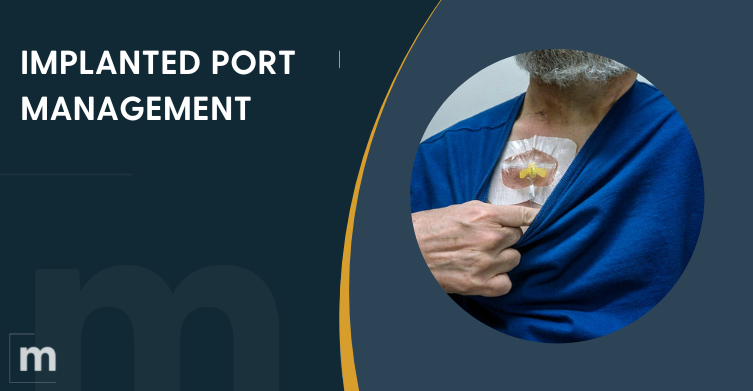
This class is designed for RNs and other qualified clinicians who want to earn certification in the maintenance of implanted ports. In this class, the nurse will learn how to manage a patient’s implanted port, including accessing, de-accessing, and flushing an implanted port. Upon completing this hands-on training class, nurses will gain the competence and confidence to manage an implanted port. Nurses will receive certification as part of this class: Implanted Port Management Certifications.
Additional information
Class Overview
The nurse will learn how to properly manage a patient’s implanted port.
This course will cover in detail:
- General Guidelines/Advantages of Implanted Ports.
- Review of Equipment and Preparation to Access an Implanted Port.
- Implanted Port Access/De-Access and Flushing Procedures.
- Complications and Documentation.
- On-Site Clinical Practice and Competencies Assessment.
- The nurse receives a certificate of completion after successful completion of the entire course.
This course also offers competency forms to be completed by your nurse’s educator and added to your employee’s folder as proof of competency.
MIDLINE AND CENTRAL LINE DRESSING CHANGE
This course is for RNs, LPN, and other qualified clinicians who want to learn how to change a Midline or a CVAD dressing safely. In this class, the nurse will learn how to prepare for and proceed with a safe dressing change. Upon completing this class, nurses will gain the competence and confidence to change a Midline or a CVAD dressing while following the standards of practice.
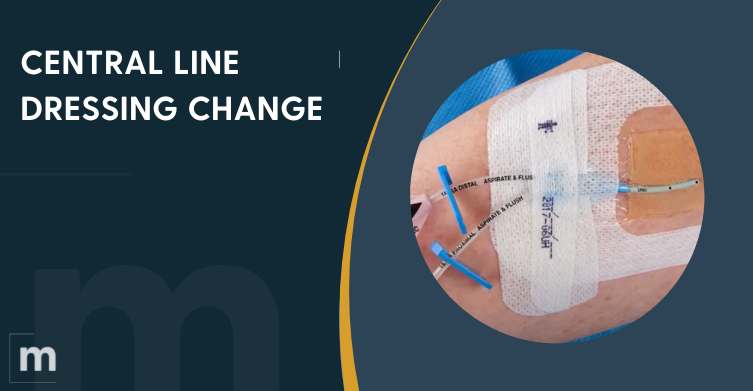
Additional information
Class Overview
The nurse will learn how to change a Midline or CVAD dressing properly.
This course will cover in detail:
- General Guidelines of dressing change.
- The Guidance of a Safe dressing change.
- Procedure to change a dressing.
- Special Consideration of dressing change.
- Monitoring of a patient before, during, and after the dressing change.
- Complications and Documentation.
In this course, the clinician will access tutorial videos and step-by-step procedure posters to help with dressing changes.
This course also includes a competency form to be completed by the nurse educator while assessing the clinician’s abilities to perform the dressing change.
PICC REMOVAL
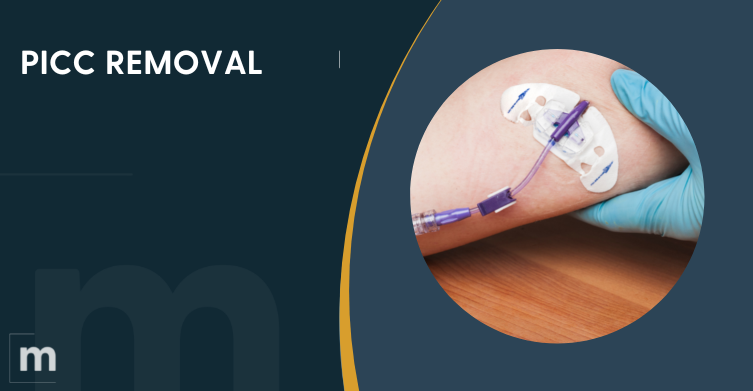
This 1-hour course includes RNs and other qualified clinicians who want to learn how to remove a Peripherally Inserted Central Catheter (PICC) safely. In this class, the nurse will learn how to prepare for and proceed with a safe PICC Removal. Upon completing this class, nurses will gain the competence and confidence to remove a PICC.
Additional information
Class Overview
The nurse will learn how to manage a patient’s receiving IV push medication properly.
This class will cover in detail:
- General Guidelines of PICC Removal.
- The Guidance of a Safe PICC Removal.
- Procedure to Remove a PICC.
- The procedure of a PICC Removal with Culture.
- Special Consideration of PICC Removal.
- Monitoring of a patient after PICC Removal.
- Complications and Documentation.
This course also includes a competency form to be completed by the nurse educator and a certificate of completion for the employee’s folder.
IV PUSH MEDICATIONS
This course is for RNs and other qualified clinicians who want to learn how to administer IV push medications safely. In this class, the nurse will learn how to prepare and administer IV push medication and manage a patient’s receiving IV push medication. Upon completing this course, nurses will gain the competence and confidence to care for a patient needing an IV push medication.
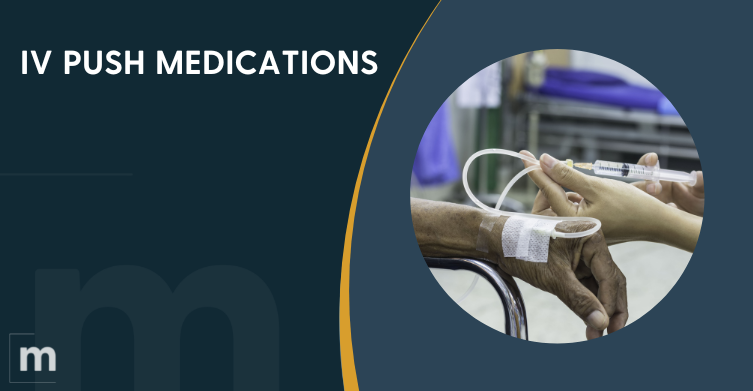
Additional information
Class Overview
The nurse will learn how to manage a patient’s receiving IV push medication properly.
This course will cover in detail:
- General Guidelines/Advantages of Using IV Push Medication.
- Review of Equipment and Preparation to Infuse an IV Push Medication.
- Procedure to Infuse IV Push Medication.
- Review the most commonly used IV push medication, including indication, dosage, and rate of administration for each.
- Monitoring of a patient receiving the medication.
- Complications and Documentation.
- The nurse receives a certificate of completion after successful completion of the entire course.
Competency forms will also be available to be printed and completed by the nurse educator and added to the employee’s file.
IV DIURETIC AND IV INOTROPIC FOR CHF
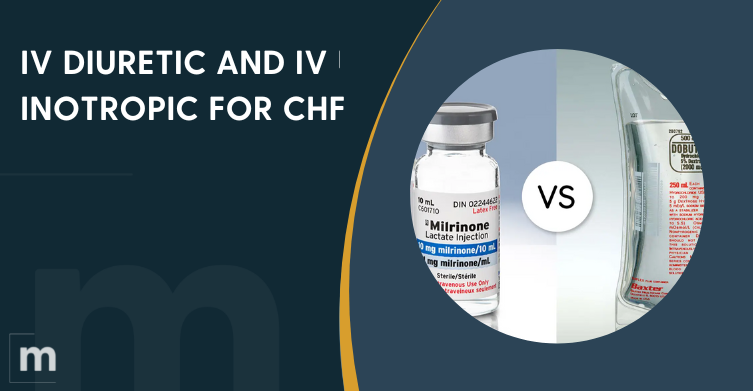
This course will provide the nurse with the knowledge and training they need to use an electronic infusion device to administer IV inotropic and/or diuretics in the treatment of patients with congestive heart failure.
Additional information
Class Overview
Upon completion of this course, the nurse will be able to:
- Understand what congestive heart failure is as well as its scope, symptoms, causes, complications, and management.
- Identify the most commonly used diuretics and inotropic in the treatment of congestive heart failure.
- Understand the mechanism of action of continuous infusion of diuretic and inotropic drugs.
- Enumerate appropriate dosages in the use of IV diuretics and inotropic for the treatment of congestive heart failure.
- Demonstrate understanding of diuretic and inotropic medication administration by recognizing the steps involved in medication preparation and infusion.
- Accurately Monitor their patient and recognize the potential side effects and complications related to the use of continuous diuretic and inotropic infusion.
- Properly document in the patient medical record their assessment, the progress of the patient as well as the patient’s response to the treatment.
- Operate the electronic infusion device (EID) SIGMA spectrum pump.
- Change from Hospital IV Medication EID to the Pharmacy IV Medication EID.
- Change Medication Bag and Administration Set.
- Change the needleless connector from the catheter of a patient receiving IV diuretic or inotropic medication.
BLOOD COLLECTION FROM A PICC
This course will provide the nurse with the knowledge and training to collect blood from a patient’s existing central line. The nurse will learn general knowledge that applies to blood collection from a PICC and both the syringe and vacutainer methods of blood collection.
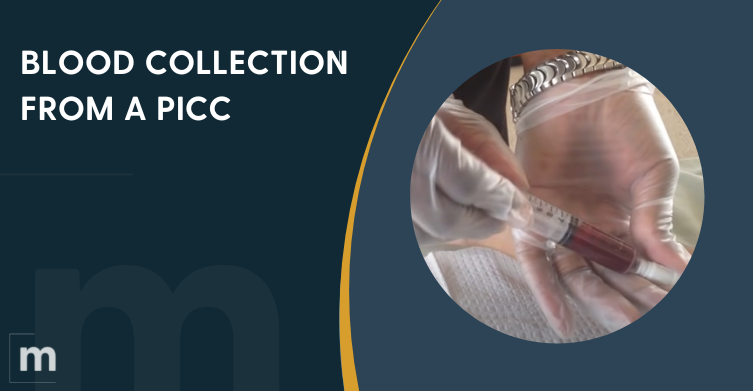
Additional information
Class Overview
Upon completion of this course, the nurse will be able to:
- Discuss current standards of practices related to blood collection from a central line.
- Differentiate the different methods of blood collection.
- Demonstrate competencies to successfully collect blood from a central line.
- Document the blood collection procedure.
UNDERSTAND AND INITIATE HYPODERMOCLYSIS
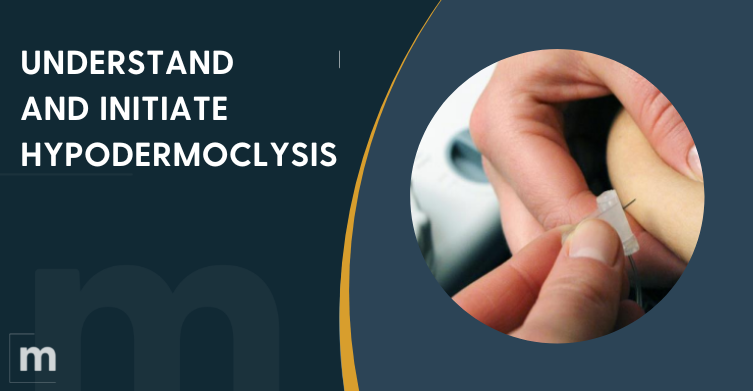
This course will provide the nurse with the knowledge and training to safely administer hypodermoclysis as an alternative to IV hydration. The nurse will obtain general knowledge that applies to hypodermoclysis and learn the procedure to administer it.
Additional information
Class Overview
Upon completion of this course, the nurse will:
- Understand what hypodermoclysis is and why it is used.
- Be able to identify indications and contraindications for the use of hypodermoclysis.
- Be knowledgeable of the advantages and disadvantages to using hypodermoclysis.
- Know which solutions are appropriate for infusion through hypodermoclysis.
- Be aware of Hyaluronidase and its use in conjunction with hypodermoclysis.
- Be able to locate proper insertion sites for the administration of hypodermoclysis.
- Know the proper procedure for the administration of hypodermoclysis, including documentation.
- Be aware of possible complications that can arise while a patient is receiving hypodermoclysis.
PHLEBOTOMY PROCEDURES
This course will provide the nurse with the knowledge and training to safely draw blood using both the syringe and vacutainer methods of phlebotomy. The nurse will learn about general knowledge that pertains to phlebotomy and the correct procedures to draw blood.
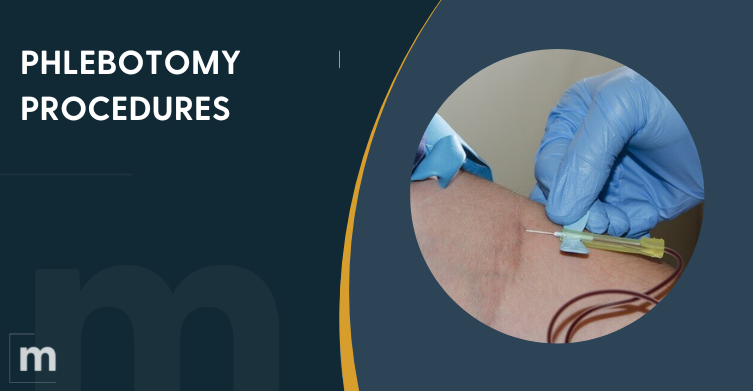
Additional information
Class Overview
Upon completion of this course, the nurse will:
- Be familiar with the proper order to fill tubes during blood draw.
- Know the importance of using standard precautions during venipuncture.
- Be able to perform the evacuated tube venipuncture procedure.
- Be able to perform the syringe venipuncture method.
- Be aware of contraindications to the completion of venipuncture.
- Be aware of possible complications resulting from venipuncture.
- Be able to properly document the procedure.
STATE-SPECIFIC COURSES
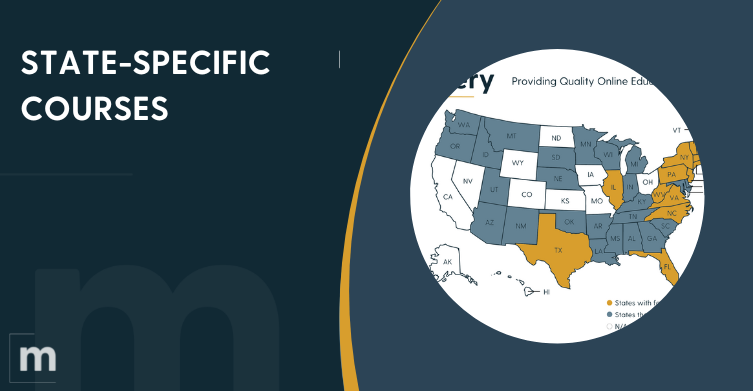
In your state-specific course, nurses will be provided with all the content they need to meet the minimum required by their state scope of practice. This includes contact hours appropriate for each course completed. Each state-specific course also covers the legality of IV infusion in your state and provides a certificate of completion upon successful completion of that course. Courses contain additional didactic material, including workbooks, competency checklists, educational posters, and video tutorials.
IV Mastery offers 17 courses in IV management and more than 40 contact hours. We provide the right tools and training to assist nurses in optimizing their IV education.
Sign up today and get unlimited access to all our classes!
Enroll yearly
$197
per year
